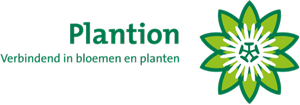Choice of pre-treatment products for Astilbe will be expanded
On 1 May 2018, there will be a change in the VBN product specification for Astilbe.
In the past year, the Post-Harvest Knowledge Centre has carried out verification testing to ascertain whether the Floralife Express Clear 100 product complies with the VBN norms for the pre-treatment of Astilbe. Research has revealed that all of the conditions have been met, and this product can be added to the obligatory products in the VBN product specification for Astilbe.
Change:
- Floralife Express Clear 100 is being added as approved product for the pre-treatment of Astilbe (code 90 on the product’s label). Already listed products remain authorized together with this new one.
- You must state the correct code of the pre-treatment product in your supply information. With this code the laboratory can check that the pre-treatment product is being used correctly.
- The grading code S65 pre-treatment must be added from today at position 6 in your EDF software package.
- Under the grading code S65, you must select the correct pre-treatment product using code 90 on the label of the product = Floralife Express Clear 100.
This product is exclusively for use as prescribed in the instructions for use.



